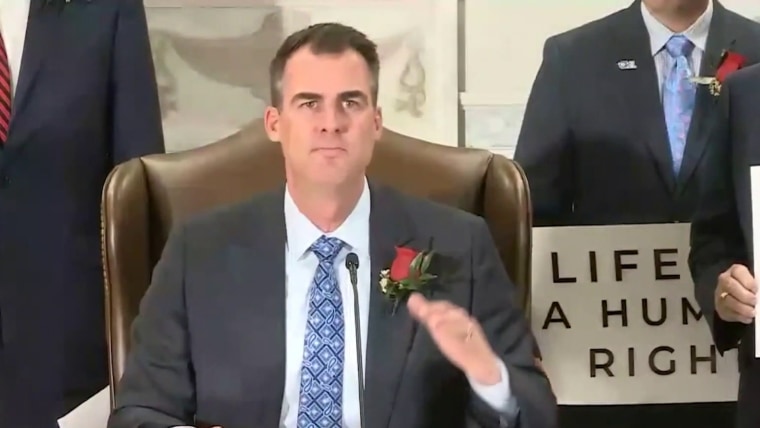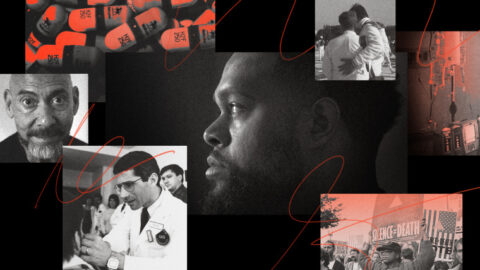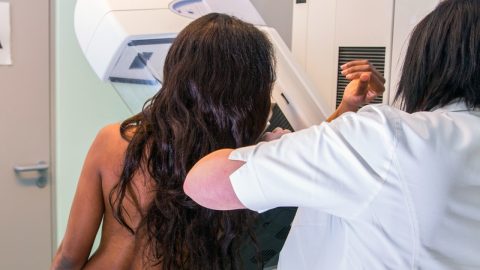As states become increasingly bold in restricting access to abortion, many have drawn the line at around six weeks of pregnancy — the point at which, the laws say, a so-called fetal heartbeat can be detected.
But according to experts, the term “fetal heartbeat” is misleading and medically inaccurate.
“While the heart does begin to develop at around six weeks, at this point the heart as we know it does not yet exist,” said Dr. Ian Fraser Golding, a pediatric and fetal cardiologist at Rady Children’s Hospital San Diego.
Instead, at six weeks, the embryo will develop a tube that generates sporadic electrical impulses that eventually coordinate into rhythmic pulses, he said. (Six weeks of pregnancy is closer to four weeks of actual development, because pregnancy is measured from the first day of a woman’s last period, before she is actually pregnant.)
That’s far from a fully formed heart, with four chambers and valves that pump blood throughout the body.
The correct medical term for what’s observed at this point is “cardiac activity,” said Dr. Sarah Prager, a professor of obstetrics and gynecology at University of Washington Medicine.
“It’s not until about 10 weeks that there is an actual structure that has four tubes and connects to the lungs and major vascular system like we would think of as a heart,” she said.
It’s around 10 weeks of pregnancy that the embryo becomes a fetus. It remains a fetus until birth.
But defining a heartbeat is tricky even after 10 weeks, said Dr. Nisha Verma, an OB/GYN who spoke on behalf of the American College of Obstetrics and Gynecology, because the heart continues to develop over the course of the pregnancy.
It’s not until around 17 to 20 weeks, when the four chambers of the heart have developed and can be detected on an ultrasound, that the term heartbeat is accurate, according to ACOG.
An emotional touchpoint
While what exists at six weeks isn’t a beating heart, pregnant people hear something during an ultrasound early in pregnancy.
“Medically speaking, when I put a stethoscope against a patient’s heart, that ‘lub dub’ sound is made by the opening and closing of the cardiac valve,” Verma said. “At six weeks, those valves don’t exist.”
In fact, the sound pregnant people hear during ultrasounds at six weeks is entirely manufactured by the ultrasound machine, Verma said. “It’s an electrical pulse that’s translated into the sound we’re hearing from the ultrasound machine.”
What’s more, the electrical pulse from the embryo almost always can be detected only by using a transvaginal ultrasound, and it doesn’t yet show up on an ultrasound of the mother’s abdomen.
But that’s where how doctors talk to patients comes in, Verma said. Although she wouldn’t consider any embryo at six weeks to have a heartbeat, she said doctors use language that patients can connect with, which often isn’t medical language, and that the use of the language in a doctor’s office plays an important role in how doctors communicate with patients.
For example, two doctors speaking to each other would use the term “myocardial infarction,” whereas a doctor speaking with a patient would use the term “heart attack.”
“I think it’s OK for people with a desired pregnancy to go in at six weeks and see that flickering and feel connected to that as a heartbeat,” Verma said. “There’s no issue with using the term ‘heartbeat’ on its own. The issue is using that incorrect term to regulate the practice of medicine and impose these artificial time frames to regulate abortion. At the end of the day, an abortion is a decision that should be made between a patient and their health care provider.”
Prager said the language and technology used during pregnancy, even in the doctor’s office, was designed for people who want to continue their pregnancies.
“If you are invested in the pregnancy, you want to anthropomorphize that pregnancy as soon as possible, and that’s a heartbeat for people,” Prager said.
Follow NBC HEALTH on Twitter & Facebook.









Recent Comments